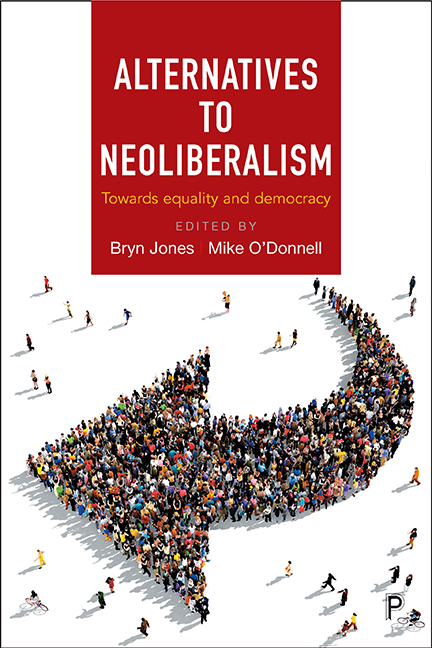Book contents
- Frontmatter
- Dedication
- Contents
- List of figures, tables and boxes
- List of abbreviations
- Notes on contributors
- Acknowledgements
- Foreword
- Editors’ preface
- Introduction: The open-market society and its opponents: an overview
- Part One Alternative paradigms and perspectives
- Part Two Reform within economic and governance restraints: pushing the boundaries
- Part Three Economic and political democracy: restoring the market-civil society balance
- Conclusion: A Brexit from neoliberalism?
- Index
Part Two - Reform within economic and governance restraints: pushing the boundaries
Published online by Cambridge University Press: 05 April 2022
- Frontmatter
- Dedication
- Contents
- List of figures, tables and boxes
- List of abbreviations
- Notes on contributors
- Acknowledgements
- Foreword
- Editors’ preface
- Introduction: The open-market society and its opponents: an overview
- Part One Alternative paradigms and perspectives
- Part Two Reform within economic and governance restraints: pushing the boundaries
- Part Three Economic and political democracy: restoring the market-civil society balance
- Conclusion: A Brexit from neoliberalism?
- Index
Summary
The kinds of reforms and transformative changes proposed in Part One would be checked, constrained or shaped by the economic and governmental institutions which currently support the neoliberal regime. The contributions in Part Two of the book assess the current state of some key institutions of this kind: international bodies currently working with neoliberal paradigms to maintain or repress further the role of public expenditure and welfare: para-governmental bodies, such as the central bank, and the business corporations and sectors in which neoliberal market principles have been translated and transmogrified. Some of these institutions are already shifting away from strict neoliberal principles, albeit reluctantly and marginally. Others are attempting to defend the neoliberal regime against economic and sociopolitical pressures for change.
In their chapter Kevin Farnsworth and Zoë Irving place the UK in comparative context. They examine the workings of the austerity frameworks with which neoliberal states and intergovernmental agencies, such as the IMF, have sought to maintain neoliberal economics by undermining the remaining elements of social democratic welfare regimes. Their analysis reveals considerable variation among these welfare states and also division and ambivalence among the governance bodies overseeing austerity. By identifying countries like Iceland, which have successfully resisted and even partially reversed austerity programmes, Farnsworth and Irving suggest that austerity may not be a further entrenchment of neoliberalism but the cusp of a possible shift away from its key principles.
Jones and O’Donnell in Chapter Six, changes the international focus to examine the ways in which the European Union has moved away from the social democratic paradigm of a Social Europe to a more aggressively neoliberal stance which has recently, and famously, clashed with national movements campaigning for abandonment of neoliberal austerity. They argue that the core of the EU has adopted a variant of neoliberalism – ‘ordoliberalism’. However, multiple and intersecting crises are still challenging this model. Opposition from what Polanyi described as the anti-market arc of the ‘double-movement’, are still challenging neoliberalism from both left and right in nearly all EU member countries. This chapter examines how the EU faces potential disruption or even disintegration from nationalistic movements, such as the UK's ‘Brexit’ challenge, and the political implications for the UK of the referendum result.
- Type
- Chapter
- Information
- Alternatives to NeoliberalismTowards Equality and Democracy, pp. 97 - 100Publisher: Bristol University PressPrint publication year: 2017



